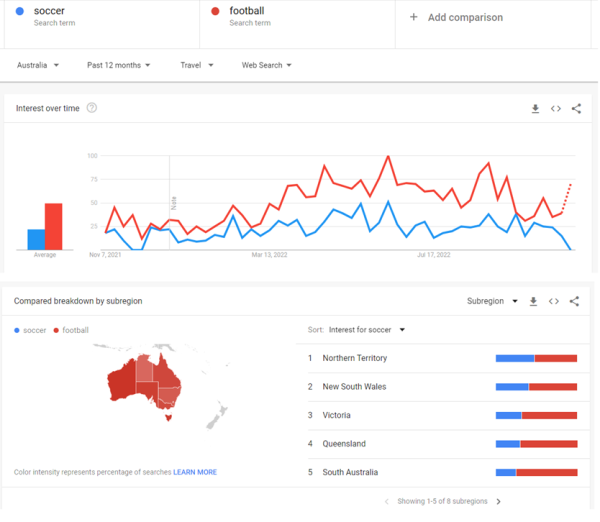The technique of identifying the keywords or search terms that attract potential traffic to your website is known as keyword research or analysis. The inclusion of search phrases into your content and uplifting the quality of your content in terms of higher visibility is called keyword optimization.
For example, if you have a website for selling laptops: you have different brands and ranges of laptops in the website. To sell these laptops you want to be on top positions of the search engines, so you have to create specific product pages. Now, it comes to the point how these pages can be ranked, here you go for a keyword research where you will find hundreds of search terms used by customers. Choosing the right keyword defines the success rate of your optimization process and sales.
Before you start moving forward with keyword research, it is crucial to understand who are your target audience, what they want, why they are here, and their objectives. This is why many keyword optimization and SEO process fail. This is an effective step, which you should consider in the search engine optimization process even when it is excluded by many, taking a direct flight to keyword research with any of the tools available in the market.
Here’s an example for the case. SupportHub360 Australia (a Perth-based Technology, IT Security and Talent Company) has heard about Kaizen Digital Studios SEO and wants help improving their rankings in organic search results. So as to help achieving higher rankings in the specified audience, we first understand a little more about their customers, target regions, services and makes a SWOT analysis before going further in keyword research.
Before you start with a keyword research it is important to have a clear idea of types of keywords and how it makes a difference in gaining from traffic to potential traffic.
A Short Tail Keyword, can be described as a ‘head term’ with one or three words represents a general topic. They mainly concentrate on niche subjects and cover a broader spectrum. On the verge of cut-throat competition, short-tail keywords become vague.
A Long Tail Keyword, is however not like a short-tail keyword, which contains words more than three terms and specifically targeted. For example, here is a search for women winter clothes in Perth and I will explain the advantages of using long-tail keywords over short-tail ones;
Seed keywords are words or phrases you might use to begin a search marketing strategy to discover other keywords. Consider them as the skeletons of SEO strategy. A seed keyword is a short-tail phrase that often contains one or two words. Seed buzzwords, like other short-tail keywords, have strong highest search quantities and competitiveness. Short-tail search results may or may not include qualifiers, but seed keywords just don’t do.
Marketing has traditionally relied heavily on trend analysis. Identifying the underlying determinants of your intended listener’s outcome and how to exploit them to your advantage is not a new concept. But, exploring what the world is searching is now is much easier with Google Trends, a free tool to analyse the Google searches with real-time data that can be affected by time and place.
The goal of keyword research is to discover new phrase possibilities to exploit for your website. On the one side, this entails recognizing new and potential search terms, which is potential as well as low in competition. For non-experts, there are many tools available for keyword studies, just by placing the website’s URL. Here are a few Keyword Tools that helps identify potential keywords based on Search Volume, Competition, Target Market etc.
Keyword grouping, also known as keyword clustering is a list of related search terms that, once identified and created, are spread across sites to assist generate organic traffic to the website. For example, if you have two similar keywords – “Buy Pizza” and “order pizza online”. How will you use them in the website? To identify this, you have to further go for a competition analysis that cover competitor keyword ranking, pages appears, keywords targeted and more. Well-organized keyword groupings increase the importance of your website, which boosts your Quality Score.
Competitor analysis is the method of discovering what your rivals are up to. Then you may exploit their faults to your favor. There are several rivals in today’s business environment, therefore staying up to speed on the different competition analysis tools accessible is vital. The same techniques may be used to look at SEO trends. Even though aggressive SEO is an important part of SEO in its beginning phases, many organisations ignore it. Companies ignore marketing research in favour of keyword analysis, search engine optimisation, and digital marketing.
Search Engine Optimization is the process of optimizing your website with potential keywords in line with Search Engine Guidelines to rank higher in various Search Engines to achieve website traffic and thereby more conversions and sales. When you choose a set of keywords to a specific page and optimize Search Engines rightly, recognize your page emphasis and position your business in relevant region. Keyword study helps you to understand the market and target audience.
Once you have a identified target keywords for your website, you have to optimize these keywords into the meta data sections and existing content. Keywords should be deliberately put throughout the material to indicate to both search engines and readers, what themes will be covered. This implies that keywords should appear organically all across the material, but they should also appear in emphases and attributes such as the H1 and H2 tags, title, keyword density, and category pages. You are pretty aware of the search results and its importance of adding well-optimized page titles in the website. The page title is the first thing that a person sees when they search on search engines.
It is not ideal adding your target keywords on the webpage everywhere. Creating attractive yet useful content provide real value, which will help decrease the bounce rate and increase the click through rate of a website.
Here are the important rules for keyword optimization that matter to you:
Once the optimization is complete, you cannot stop the process there. It is the key to perform studies on the performance of the optimized keywords in regular intervals and take measures for further improvements. Keyword performance analysis as per the reflections on Google Analytics and Search Console provides valuable insight of the performance of your website into the queries, that your target audience is actually searching on Google. Regular performance analysis and optimization keeps your website go ahead of your competitors in keyword rankings and thereby improving the traffic to the website.










